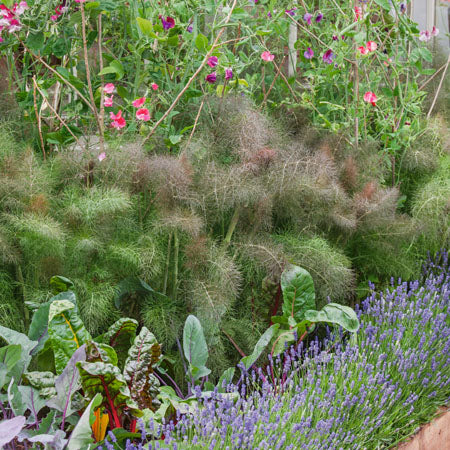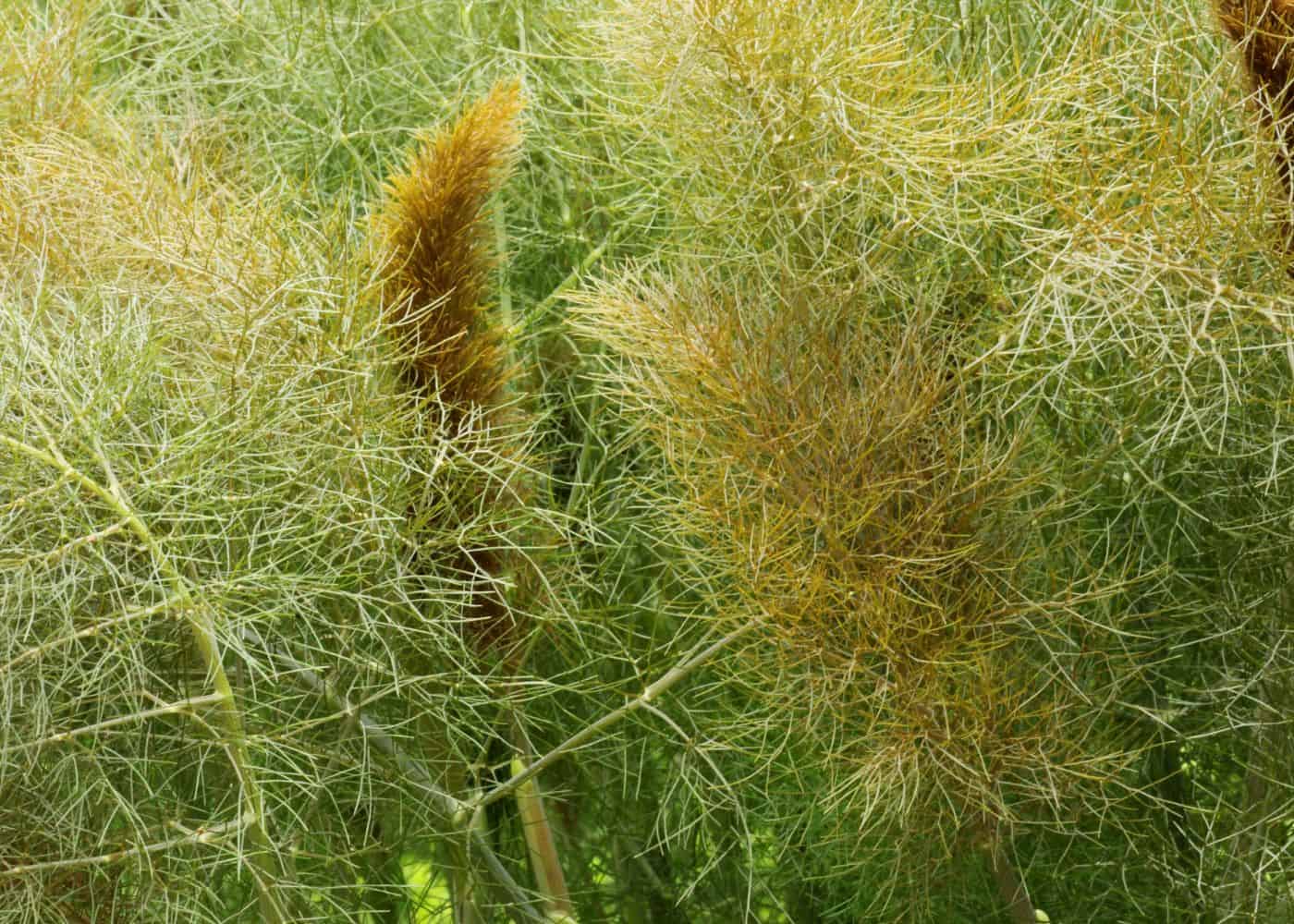Bronze Fennel: The Surprisingly Good Companion Plant
Fennel is a familiar herb that is often used in cooking, but did you know that it can also be a great companion plant? Bronze fennel, in particular, is a good choice for companion planting because it has a number of beneficial qualities.
In this blog post, we will explore the benefits of growing bronze fennel as a companion plant, as well as some tips on how to do it successfully.
Benefits of Growing Bronze Fennel as a Companion Plant
- Attracts beneficial insects. Bronze fennel is a magnet for beneficial insects, such as ladybugs, hoverflies, and parasitic wasps. These insects help to control pests in the garden, such as aphids, cabbage loopers, and tomato hornworms.
- Improves soil quality. Bronze fennel is a nitrogen-fixing plant, which means that it adds nitrogen to the soil. This can benefit other plants in the garden, as nitrogen is an essential nutrient for plant growth.
- Discourages pests. The strong scent of bronze fennel can help to deter pests, such as rabbits, deer, and cabbage moths.
- Provides shade. The tall, leafy stalks of bronze fennel can provide shade for other plants in the garden, which can help to protect them from the hot sun.
- Attracts pollinators. The fragrant flowers of bronze fennel attract pollinators, such as bees and butterflies. These pollinators help to pollinate other plants in the garden, which can lead to a better harvest.
Tips for Growing Bronze Fennel as a Companion Plant
- Plant bronze fennel in full sun. It will tolerate partial shade, but it will not grow as well.
- Bronze fennel prefers rich, moist, well-drained soil. Amend the soil with compost or manure before planting.
- Space bronze fennel plants 18-24 inches apart.
- Water bronze fennel regularly, especially during hot, dry weather.
- Fertilize bronze fennel with a balanced fertilizer every few weeks.
- Harvest bronze fennel when the stalks are young and tender. You can use the stalks, leaves, and seeds in cooking.
Conclusion
Bronze fennel is a versatile and beneficial plant that can be grown as a companion plant in many different types of gardens. If you are looking for a plant that can attract beneficial insects, improve soil quality, and discourage pests, then bronze fennel is a great option.
Bronze fennel is a beautiful and aromatic herb that can add a touch of elegance to any garden. But did you know that it's also a great companion plant for other herbs and vegetables?
Here are a few of the best companion plants for bronze fennel:
- Dill: Dill is a natural companion for fennel, as the two plants help to stabilize each other's growth. Dill also helps to deter pests, such as aphids and carrot flies. [link to website address]
- Lettuce: Lettuce and fennel are both cool-season crops that can be planted together in the early spring or fall. Lettuce helps to shade the fennel's roots, which can help to prevent them from drying out.
- Cucumbers: Fennel and cucumbers are both members of the cucurbit family, and they can benefit from each other's company. Fennel helps to repel cucumber beetles, and cucumbers help to shade the fennel's roots.
- Sage: Sage is another great companion plant for fennel, as the two plants have similar growing requirements. Sage helps to deter pests, and it also adds a touch of fragrance to the garden.
If you're looking for more information about companion planting with bronze fennel, I recommend visiting Gardenia Inspiration. This website has a wealth of information on the topic, including a list of other plants that can be grown alongside bronze fennel.
FAQ of bronze fennel companion plants
- What are the best companion plants for bronze fennel?
Fennel is a member of the Apiaceae family, which includes many other herbs with strong aromas, such as dill, carrots, and parsley. These plants can compete with each other for water and nutrients, and their strong scents can also attract pests and diseases. As a result, it is generally best to avoid planting fennel near other members of the Apiaceae family.
Some good companion plants for bronze fennel include:
Tomatoes: Fennel can help to deter tomato hornworms and other pests.
Cucumbers: Fennel can help to improve the flavor of cucumbers.
Basil: Fennel and basil both have strong aromas that can help to repel pests.
Herbs: Fennel can be planted with other herbs, such as thyme, rosemary, and oregano, to create a fragrant herb garden.
Flowers: Fennel can also be planted with flowers, such as marigolds, nasturtiums, and zinnias, to attract pollinators.
What are some plants that should not be planted near bronze fennel?
In addition to other members of the Apiaceae family, there are a few other plants that should not be planted near bronze fennel:
Mint: Mint is another highly aromatic plant that can compete with fennel for water and nutrients.
Sage: Sage can also be affected by fennel's strong aroma.
Broccoli: Broccoli can be susceptible to the same pests and diseases as fennel.
Cabbage: Cabbage can also be susceptible to the same pests and diseases as fennel.
Cauliflower: Cauliflower can also be susceptible to the same pests and diseases as fennel.
Can bronze fennel be grown in a container?
Yes, bronze fennel can be grown in a container. This is a good option if you do not have a lot of space in your garden, or if you want to protect your fennel from pests and diseases. When growing fennel in a container, make sure to choose a pot that is at least 18 inches in diameter and has drainage holes. Fill the pot with a well-draining potting mix and plant the fennel seedling at the same depth as it was growing in the nursery pot. Water the fennel regularly and fertilize it every few weeks with a balanced fertilizer.
- How do I know if my bronze fennel is doing well?
A healthy bronze fennel plant will have bright green or bronze leaves that are free of pests and diseases. The plant should also be growing at a steady rate. If your fennel plant is not doing well, it may be due to a lack of sunlight, water, or nutrients. You may also need to repot the plant if it has outgrown its current pot.
Image of bronze fennel companion plants
- Bronze fennel and lavender. Lavender is a popular companion plant for bronze fennel because it helps to deter pests. The two plants also complement each other's colors, with the bronze fennel's deep green leaves and lavender's purple flowers.

- Bronze fennel and tomatoes. Tomatoes and bronze fennel are both Mediterranean plants that thrive in full sun. They can also help each other out, with the fennel's strong scent deterring pests from the tomatoes, and the tomatoes' nitrogen-rich foliage feeding the fennel.
- Bronze fennel and sunflowers. Sunflowers and bronze fennel are both tall plants that can be grown together to create a striking border or backdrop in the garden. They also have similar growing requirements, so they are relatively easy to care for.

- Bronze fennel and roses. Roses and bronze fennel can be grown together in a sunny border, with the fennel's feathery leaves providing a contrast to the roses' blooms. The two plants also have similar water and fertilizer requirements.
- Bronze fennel and basil. Basil and bronze fennel are both herbs that can be grown together in a herb garden. They have similar growing requirements and can help each other out, with the basil's insect-repelling qualities deterring pests from the fennel, and the fennel's strong scent helping to keep the basil's leaves free of mold.

Post a Comment for "Bronze Fennel: The Surprisingly Good Companion Plant"